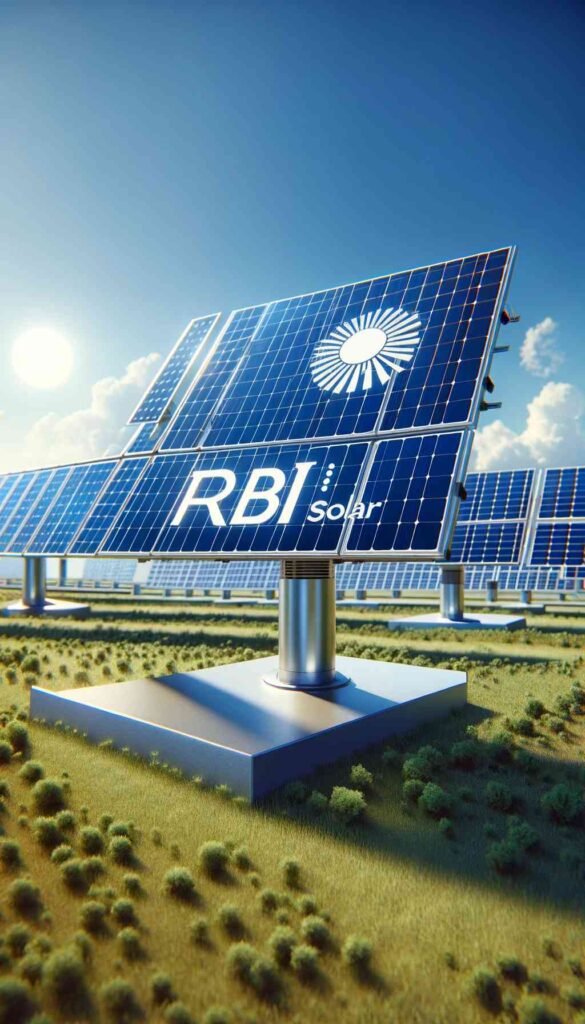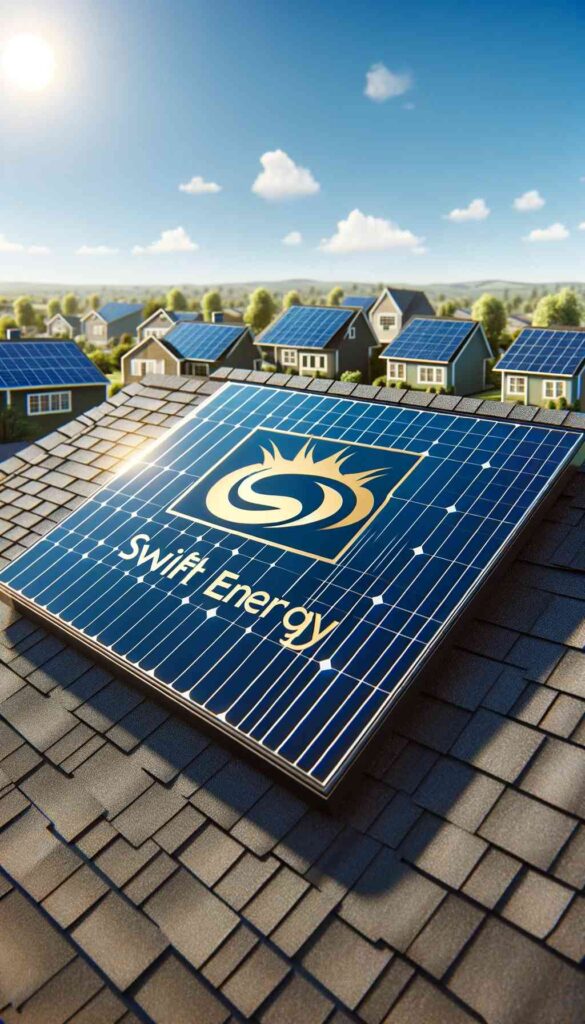
Key Takeaways
- Solar power is a clean, renewable energy source that significantly reduces carbon emissions.
- Installing solar panels on your home can decrease your reliance on fossil fuels and lower your energy bills.
- Large-scale solar farms contribute to a considerable reduction in greenhouse gas emissions.
- Adopting solar power not only benefits the environment but also boosts local economies and job markets.
- Technological advancements in solar energy continue to improve efficiency and accessibility, making it an increasingly viable option for homeowners.
Shining Light on Solar Power’s Role in Carbon Reduction
Understanding the connection between solar power and carbon reduction is important. Solar panels convert sunlight into electricity without burning fossil fuels. This means that they don’t release carbon dioxide or other greenhouse gases that contribute to climate change. By choosing solar, you’re taking a stand against air pollution and helping to preserve our planet for future generations.
Clean Energy Revolution
Solar power generates electricity without emitting greenhouse gases such as carbon dioxide (CO2), methane (CH4), or nitrogen oxides (NOx), unlike fossil fuels such as coal, oil, and natural gas. By using solar energy, we can produce electricity without contributing to the buildup of greenhouse gases in the atmosphere.
Reduced Dependency on Fossil Fuels
Solar energy reduces reliance on fossil fuels for electricity generation. Burning fossil fuels releases CO2 and other pollutants into the atmosphere, contributing to global warming and air pollution. By shifting to solar power, we can decrease the demand for fossil fuels, leading to lower carbon emissions.
Mitigation of Climate Change
By reducing carbon emissions, solar power contributes to mitigating climate change and its associated impacts, such as rising global temperatures, extreme weather events, sea level rise, and disruption of ecosystems. Transitioning to renewable energy sources like solar power is essential for addressing the challenges of climate change and creating a more sustainable future.
Drastic Emission Cuts with Solar Adoption
Imagine a world where the air is cleaner and energy is abundant and sustainable. That’s the world solar power is building. By adopting solar energy, we’re witnessing a drastic cut in emissions. This is not just a dream; it’s happening right now, as homes and businesses make the switch to solar. And here’s the best part: the more people join the solar movement, the greater the impact we’ll have on reducing carbon emissions.
Most importantly, the transition to solar is not a solo journey. When you install solar panels, you’re not just changing your own carbon footprint; you’re becoming part of a global shift towards sustainable living.
- Lower energy bills: Solar power can significantly reduce what you pay for electricity each month.
- Increased home value: Homes with solar installations often have higher property values.
- Tax incentives: Many governments offer tax credits and rebates for installing solar panels.
Powering the Future: Renewable Energy in Action
Renewable energy is not just a buzzword; it’s the cornerstone of a sustainable future. Solar power is leading the charge, with installations popping up on rooftops and in solar farms across the globe. But why is it important for our future?
- It’s inexhaustible: The sun provides more energy than we could ever use, and it’s not going to run out anytime soon.
- It’s clean: Solar power generates electricity without air or water pollution, preserving our environment and health.
- It’s empowering: Solar energy gives us the power to generate our own electricity, making us less dependent on energy providers.
As we look to the future, solar energy is not just a choice; it’s a necessity. It’s a way to ensure that our children and their children inherit a world that’s as beautiful and bountiful as the one we enjoy today.
Installation and Impact: From Panels to Power
Let’s get down to brass tacks. Installing solar panels might seem like a big leap, but it’s simpler than you think. The process starts with a solar assessment, determining how much sun your roof gets. Then, a solar provider designs a system to fit your needs. The installation is quick, often completed in just one day. From that moment on, your home becomes a mini power plant, quietly converting sunlight into electricity.
Now, consider the impact. Each kilowatt-hour (kWh) of solar energy you produce means one less kWh that needs to be generated by burning fossil fuels. Over a year, a typical home solar system can save the equivalent carbon emissions of driving a car over 2,500 miles. That’s a significant reduction in your personal carbon footprint, all thanks to the power of the sun.

The Ripple Effect of Choosing Solar
When you choose solar, the benefits ripple out like waves. It starts at home, with lower energy bills and a smaller carbon footprint. But the ripples spread much further. Your choice influences neighbors, friends, and family, potentially inspiring them to make the switch too. And as more homes go solar, the demand for fossil fuels decreases, leading to reduced carbon emissions on a community-wide scale.
But it’s not just about emissions. Solar panels can also reduce the strain on our power grids, especially during peak usage times. This means fewer blackouts and a more stable energy supply for everyone. So, when you choose solar, you’re not just lighting up your own home; you’re helping to keep the lights on in your community.
Community Benefits Beyond Your Backyard
Adopting solar power does more than just shrink your carbon footprint; it can energize your local economy. Solar installation creates jobs, many of which are high-paying and can’t be outsourced. Local governments also collect additional property taxes from homes with solar installations, which can then be reinvested in community projects.
And let’s talk about energy independence. Communities that embrace solar are less reliant on imported fuels, keeping more money in the local economy and providing a buffer against energy price fluctuations. It’s a win-win situation—cleaner energy and a stronger local economy.
Global Impact of Local Solar Choices
Every solar panel installed contributes to a global tapestry of renewable energy. This collective effort is vital in tackling climate change. By reducing demand for fossil fuels, we’re helping to slow down the rate of global warming and giving our planet a fighting chance.
It’s a powerful thought: your choice to go solar has an impact on a global scale. You’re part of a community of millions who are making a difference, one solar panel at a time. And as solar technology becomes more affordable and accessible, this community will only continue to grow.

Solar Beyond the Roof: Expanding Your Green Influence
Solar power isn’t limited to just rooftops. Community solar projects allow you to benefit from solar energy without needing to install panels on your own home. These projects are especially beneficial for renters, those with shaded roofs, or anyone who wants to support renewable energy.
Advocating for Solar in Your Community
Spreading the word about solar power is essential. You can start by joining local environmental groups or attending town hall meetings to speak up for solar initiatives. Educate your neighbors about the benefits of solar, not just for the environment but for their wallets too.
And don’t forget about schools. Advocating for solar panels on school buildings can teach students about renewable energy and show them that their community values sustainability. Plus, the savings on energy bills can be redirected into educational resources or facility improvements.
Investing in Solar Energy Stocks and Funds
If you’re looking for a way to support solar power beyond your own home, consider investing in solar energy stocks or mutual funds. This is a chance to put your money where your heart is, backing companies that are advancing solar technology and expanding access to clean energy.
Investments like these not only promote the growth of renewable energy but can also be financially rewarding. As the solar industry grows, so too can your investment. But remember to do your homework or consult a financial advisor to make informed decisions about your investment portfolio.
The Bright Future of Solar Technology Advancements
One of the most exciting aspects of solar power is the pace of innovation. Solar panels are becoming more efficient, more affordable, and easier to install. And with each breakthrough, solar energy becomes a more attractive option for homeowners around the world.
New materials and manufacturing processes mean that the solar panels of tomorrow will be even more powerful and less obtrusive than those we have today. They’ll integrate seamlessly into our lives, generating clean energy without us even noticing.
Next-Gen Solar Panels: More Power, Less Space
The next generation of solar panels promises more power output in a smaller footprint. This means you’ll be able to generate more electricity without sacrificing as much space. And for those concerned about aesthetics, newer panels are designed to blend in with your roof, making them virtually invisible from street level.
Imagine a future where every building, from homes to skyscrapers, generates its own power. This vision is not far-fetched; it’s the direction we’re heading. And with each solar panel installed, we’re one step closer to a sustainable, carbon-neutral world.
Building Integrated Photovoltaics: Aesthetics and Efficiency
The latest trend in solar technology marries form and function in the most elegant way possible. Building Integrated Photovoltaics (BIPV) are not just solar panels; they are part of the building itself, doubling as roofing materials, windows, facades, and even shading structures. BIPV transforms buildings into power-generating entities without compromising on design. This integration means that new constructions can be both aesthetically pleasing and energy-efficient from the get-go.

Frequently Asked Questions
Can Solar Power Fully Replace Fossil Fuels?
While solar power has the potential to significantly reduce our reliance on fossil fuels, it’s not a one-size-fits-all solution just yet. The key is to integrate solar with other forms of renewable energy, like wind and hydro, to create a diverse and reliable energy mix. That said, for many homeowners, solar power can cover a substantial portion of their energy needs, and when paired with energy storage systems, it can greatly minimize their dependence on the grid.
How Much Carbon Emission Can One Solar Panel Save?
Every solar panel makes a difference. On average, one residential solar panel can save around one ton of carbon dioxide over its lifetime. That’s like planting around 50 trees. The more panels you have, the bigger the impact. Think of it as your personal contribution to a cleaner atmosphere.
Is Solar Power Reliable During Winter or Rainy Seasons?
Yes, solar power is reliable, even when the sun isn’t shining brightly in the sky. Modern solar panels are incredibly efficient and can generate electricity even on cloudy days. Of course, output levels vary, but with a well-designed system and perhaps a battery backup, you can ensure a consistent power supply throughout the year.
What Are the Long-Term Savings of Switching to Solar?
Switching to solar is an investment that pays off. Over the lifespan of your solar system, you could save tens of thousands of dollars on electricity bills. And with the average lifespan of solar panels being around 25-30 years, those savings can be substantial. Plus, you’re also protected against rising energy costs, adding another layer of financial security.
How Does Solar Power Benefit the Local Economy?
Solar power isn’t just good for the planet; it’s a boon for the local economy too. It creates jobs in manufacturing, installation, maintenance, and sales. These jobs are often well-paying and can’t be outsourced. Solar investments keep more money circulating within the community and help build a resilient local economy. By choosing solar, you’re supporting job growth and innovation right where you live.
In conclusion, solar power is more than just an eco-friendly choice. It’s a smart financial move, a statement of your commitment to the planet, and a contribution to your community’s economic well-being. By harnessing the sun’s energy, we can reduce our carbon footprint, save on energy costs, and move towards a brighter, cleaner future. So, let’s embrace the sun’s power and take a step forward into a sustainable world together.


